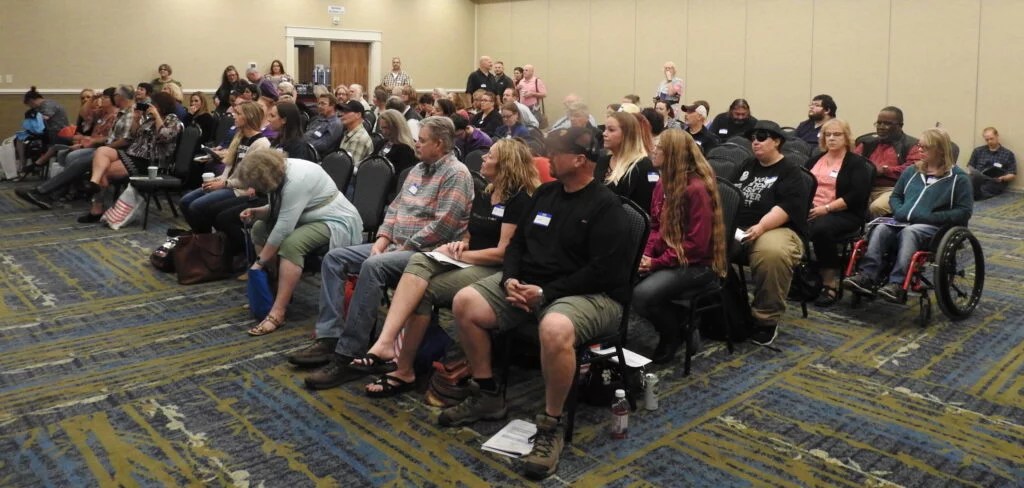We are a network of individuals who are on the path of recovery.
We identify as being in recovery from mental health, substance abuse and or addiction struggles. Together we share information, provide peer support, advocate with a united voice and improve the system. We come from places all across Montana, with different stories and experiences but together we make a difference. This is the Recovery Movement in Montana.


Realizing Recovery Blog
Recovery is Life
Recovery is the beginning of positive change and evolving into the spirit and human being an individual was meant to be. Its the bond and balance of body, mind, and soul. It is the discovery of who Creator really made an individual to be.
Relationships in Recovery
I believe that relationships are what gives each of our lives purpose. The connection that each of us have with the people in our lives is what gives us the ability have the emotions that we get to experience. I also believe that we get to have a relationship with ourselves.
Advocacy
Check out our new page dedicated to tracking state and federal bills, executive orders, and lawsuits.
 Standing up for what we believe is right, having a voice, making choices in recovery, and sharing our own recovery story are some of the things that make up advocacy and self-advocacy.
Standing up for what we believe is right, having a voice, making choices in recovery, and sharing our own recovery story are some of the things that make up advocacy and self-advocacy.
Let’s start with self-advocacy which refers to an individual’s ability to effectively communicate, convey, negotiate, or assert his/her own interests, desires, needs, or rights. It involves making informed decisions and taking responsibility for those decisions (Van Reusen et al., 1994).
Knowing yourself and your strengths, needs, and interests is the first step toward advocating for your rights. Once we begin to find our way on the path of recovery, we may want to begin to advocate for ourselves with those around us—peer supporters, friends, family, service providers, and doctors. These conversations may be difficult, but having them is vital to your recovery. Remember, you are the expert on yourself.
It may be that prior to getting on the path to recovery, others were making decisions for you or acting in what they believed to be your best interest. Now may be the time for you to let others know what you believe to be in your best interest. You may find yourself in the process of taking control and making decisions affecting your life and perhaps others’ lives. This process of self-determination means making informed choices, problem solving, setting and attaining goals—essentially being a self-advocate.
Advocacy or advocating for others may be something you are interested in doing. Advocating for another person isn’t about acting in a person’s perceived best interest, but it is standing with a person to ensure they are able to articulate and obtain what they want or need. Perhaps you may consider speaking up and advocating for various changes in the services in your community.
Here are a few examples of advocacy:
- Speak to your legislature or a special committee.
- Get involved with an advocacy group or organization.
- Share your recovery story to support others in recovery.
- Whether advocating for yourself, for others, for your community, or as part of an organization, advocacy is very self-empowering. You can make a real difference in your life, the lives of others, and even the community.
- Reach out to Montana’s Peer Network and share your recovery story on one of our “Recovery Talks” podcasts.
Advancing Advocacy Blog
Mental Health Services Uncertain
May is Mental Health Awareness Month. At least for now. I say that because with all of the federal changes one never knows. What the Department of Government Efficiency will deem inefficient is anyone’s guess. May was first established as mental health awareness month in 1949 by Mental Health America (https://mhanational.org/) the oldest mental health advocacy organization in the United States. You can take a number of mental health screenings for free on their website. They also have resources for further support. Now more than ever mental health advocates need to work to bring awareness to the importance of mental wellbeing.
My Journey with ARFID
As a parent, you often hear from others about how picky toddlers can be. When my daughter turned four, we attended her annual well-child appointment. The doctor, slightly condescendingly, showed me on her hand what a healthy plate of food should look like, emphasizing the protein and vegetable ratio. She felt the need to give me this information due to my daughter’s slightly higher BMI. At almost 45 years old, I would have had to live under a rock not to know what a healthy plate should consist of. This doctor was one of three who shamed me for my daughter’s BMI rather than asking about her food intake.



